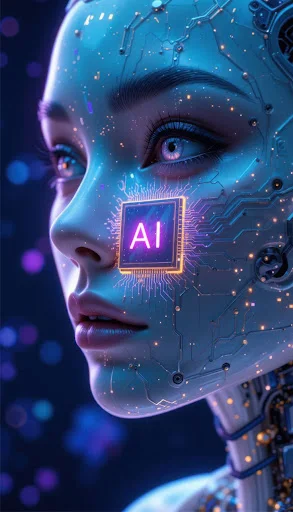Let me be completely honest: AI is helpful—too helpful sometimes. Tools like ChatGPT have changed how we approach learning, writing, and researching. And while that sounds like a good thing, it comes with a heavy cost—our ability to think, understand, and grow on our own is disappearing. I’m not just pointing fingers at everyone else. I’m talking about myself, too. AI has made things easier, but it’s also made me more dependent. And if I’m honest, it’s made me feel a little dumber.
I’ve used ChatGPT and other AI tools for academic work. Essays, summaries, even research tasks. The temptation is real. Why spend hours writing something when a machine can do it in minutes? But here’s the issue: when I had to do it on my own, I struggled. Badly. The skills I was supposed to be building—critical thinking, writing, analysis—they were slipping away. Not because I wasn’t smart, but because I stopped using them. And I’m not the only one. This is happening to students everywhere.
Some people say the 2005 and 2006 kids are safe. They’re not. Not really. Sure, they might not have had as much access to AI while growing up, but they’re entering the same university system we are. The same pressures. The same shortcuts. The same easy way out. AI won’t just be a tool—it’ll be a crutch, just like it has become for so many of us.
Academic integrity isn’t just about avoiding plagiarism. It’s about the process of learning. It’s about struggling through something and coming out stronger. When AI does all the heavy lifting, we don’t build mental strength—we avoid the workout entirely. That’s why it feels like it’s destroying us. Our understanding of what’s "right" is being blurred. If it’s not technically cheating, we think it’s okay. But when the machine writes your thoughts, whose knowledge are you really showing?
Maybe we need to look at other countries. China, for example, has a reputation for academic toughness. Their students push through intense workloads, with or without advanced tech. They still grind. They’ve built mental endurance. They’re trained to think, to solve, to learn deeply. That’s something I admire. Maybe we need to reconsider how we balance technology with discipline, especially in African countries, where our potential is massive—but we risk becoming too dependent.
I’m not saying we should throw AI away. It has real benefits. It can support learning, offer feedback, and help you understand hard concepts. But it should never replace you. It should never do all the work. Otherwise, we’re not learning—we’re outsourcing our minds. That’s not education. That’s performance without growth.
This blog isn’t just a rant. It’s a wake-up call. For me. For other students. For teachers. For countries. We need to reimagine what academic success looks like in a world with AI. Not just better grades, but better minds. Minds that still know how to struggle, how to write, how to solve, and how to stand on their own.
Because if we don’t stop and rethink this now, we might be building a generation of high marks—and hollow minds.








1 comment:
Good
Post a Comment